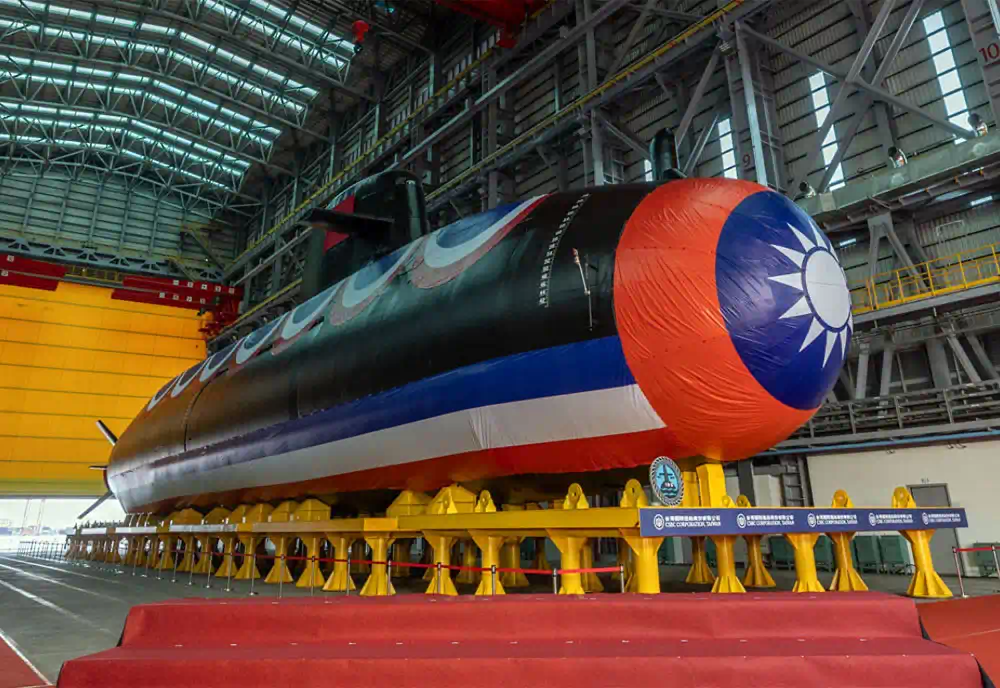Submarine Plans Intensify Amid Rising Tensions
As Taiwan ramps up its indigenous submarine program, the stakes have never been higher. Taiwan is set to invest an estimated $2 billion in its Hai Kun-class submarines, aiming to deploy two by 2027. This ambitious plan is not just a military enhancement but a direct challenge to China’s naval ambitions in the Taiwan Strait.
Indigenous Development as a Defense Strategy
With foreign manufacturers unwilling to supply Taiwan with diesel submarines, and U.S. support proving insufficient, Taiwan"s government has turned inward. The Indigenous Defense Submarine (IDS) program represents a significant shift in defense policy, prioritizing self-reliance over dependence on international suppliers. According to Reuters, these submarines are expected to play a crucial role in deterring potential aggressions from the People"s Liberation Army Navy.

Taiwan bolsters South China Sea deployments, gets US ...
Technological Innovations at a Cost
The move towards building submarines domestically comes with enormous financial implications. The decision to develop these vessels in Taiwan is laden with risks and uncertainties, particularly as the country grapples with limited resources and technological expertise. As reported by Michael Reilly, Taiwan"s procurement strategies will need to adapt to ensure that these submarines meet the necessary technological standards without jeopardizing fiscal stability.
Geopolitical Implications of Submarine Deployment
The deployment of these submarines is expected to reshape the balance of power in the region. As detailed by Forbes, Taiwan"s new submarines could potentially deter Chinese aggression by enhancing its defensive capabilities. However, such advancements could also escalate tensions further, inciting China to ramp up its own military readiness. The question remains whether these submarines will serve as a protective shield or a catalyst for conflict.

ROCS Hai Kun (SS-711) Diesel-Electric Attack Submarine
Environmental and Ethical Considerations
Beyond military strategy, the environmental implications of submarine construction cannot be overlooked. As Taiwan invests in its defense, it must also consider the ecological footprint of its military endeavors. Building submarines involves significant resource consumption and environmental degradation. Progressive voices are calling for a balanced approach that prioritizes not only national security but also sustainability and ecological responsibility.
The Role of Technology in Defense
The adoption of advanced technologies in the Hai Kun-class submarines reflects a broader trend in global defense strategies. Artificial intelligence, automation, and enhanced cyber capabilities are becoming increasingly integral to modern warfare. However, this reliance on cutting-edge technology also raises questions about privacy and surveillance. As Taiwan navigates this complex landscape, it must ensure that its technology policies protect citizens" rights while enhancing national security.

History of the Presidential Office Building-Architecture ...


![[Video] Heavy clashes and gunfire reported in Baghdad, Iraq](/_next/image?url=%2Fapi%2Fimage%2Fthumbnails%2Fthumbnail-1768342239932-848qsh-thumbnail.jpg&w=3840&q=75)




![[Video] Gunfire between Iraqi security forces and Sadr militias in Baghdad](/_next/image?url=%2Fapi%2Fimage%2Fthumbnails%2Fthumbnail-1768343508874-4redb-thumbnail.jpg&w=3840&q=75)
